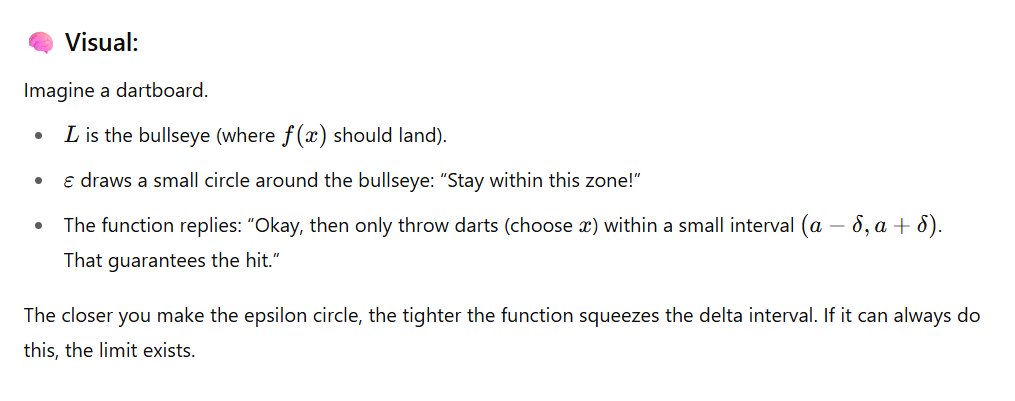No, I do not, in fact, understand this.
The way I understand it right now is: limits are important in the sense that if you KNOW that at a certain point, it is a certain limit, then at any point, you should be confident that as moves closer and closer to or whatever limit you measured, you can be confident that you are approaching that limit.
Explore the epsilon-delta definition of limits, which states that the limit of f(x) at x=c equals L if, for any ε>0, there’s a δ>0 ensuring that when the distance between x and c is less than δ, the distance between f(x) and L is less than ε. This concept captures the idea of getting arbitrarily close to L.
Informally, the definition states that a limit of a function at a point exists if no matter how is approached, the values returned by the function will always approach .

- [?] so what i’m asking is,,,, does this actually matter or is this just for proofs ????